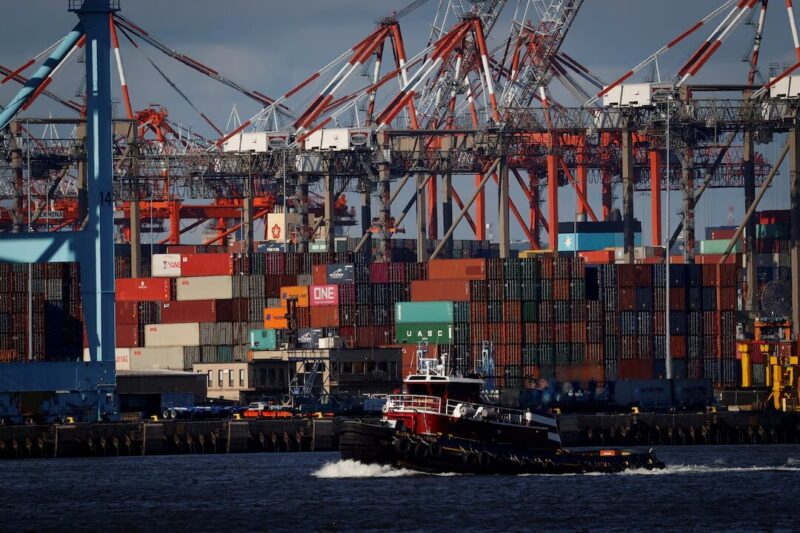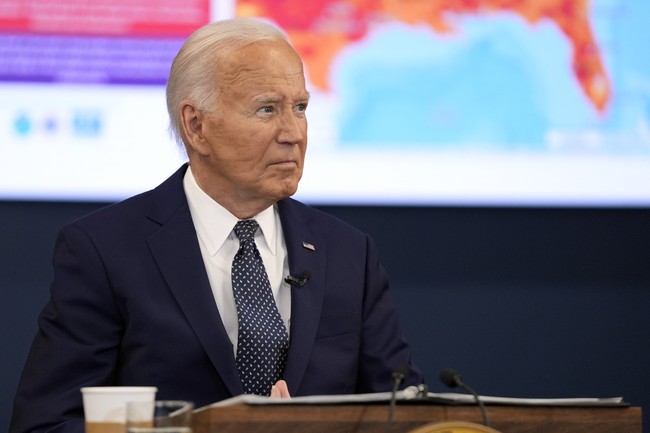US Port Strike Threatens Supply Chains and Economy
A major strike by dock workers from Maine to Texas could disrupt supply chains, potentially costing billions of dollars and impacting the economy just weeks before the presidential elections.
Published October 02, 2024 - 00:10am

Image recovered from myjoyonline.com
A port strike on the U.S. East Coast and the Gulf of Mexico, set to go ahead starting Tuesday, has raised alarms among businesses and government officials alike. The International Longshoremen's Association (ILA) confirmed the strike, signaling action that could cause significant delays and snarl supply chains across the United States.
The dispute stems from longstanding wage issues and disagreements over terminal automation projects. The United States Maritime Alliance (USMX), representing employers of the East and Gulf Coast longshore industry, has yet to offer a satisfactory resolution, according to union officials. If union members walk off the job, it would be the first coast-wide ILA strike since 1977, affecting ports that handle around half of the nation's ocean shipping.
No negotiations are currently planned before the midnight Monday deadline, exacerbating concerns. The union has assured that the strike will not impact military cargo shipments or cruise ship traffic. However, the implications for commercial activities are severe. A stoppage could jeopardize jobs, disrupt the flow of goods including food and automobiles, and stoke inflation weeks ahead of the U.S. presidential election.
White House spokesperson Robyn Patterson stated that senior officials have been in touch with USMX representatives, urging a “fair agreement” that reflects the companies' success. President Joe Biden emphasized that he does not intend to intervene to prevent a walkout if dock workers fail to secure a new contract by the Oct. 1 deadline, invoking his belief in the collective bargaining process and opposition to using the Taft-Hartley Act to force an 80-day cooling-off period.
Business leaders, notably from the Business Roundtable, have expressed deep concerns about the potential strike. The group warned that a labor stoppage could cost the U.S. economy billions of dollars daily and disrupt the national supply chain, impacting businesses, workers, and consumers across the country. According to Steve Hughes, CEO of HCS International, the ILA strike holds the entire country in suspense.
In Europe, similar sentiments are echoed. According to sources from Europa Press, the strike by 45,000 longshoremen started as scheduled and threatens to cost the economy approximately 5 billion dollars per day, exacerbating inflation as supply chains tighten. Ports in New York, Baltimore, Virginia, Savannah, and Houston, among others, are impacted. The union's demand for a significant wage increase and cessation of terminal automation projects has been a sticking point in negotiations. Should the strike prolong, the repercussions on the economy could be staggering, with daily losses estimated between 3.8 to 4.5 billion dollars.
AFL-CIO's Transportation Trades Department (TTD), representing a wide range of U.S. transportation workers, has expressed solidarity with the dock workers. TTD's president and secretary-treasurer decried the employers' stalling tactics, pointing fingers at USMX for deferring negotiations until the public and national supply chain were most vulnerable.
Meanwhile, international perspectives highlight similar concerns. Reports indicate that the total throughput at the affected ports represents about half of the U.S.'s trade volume. JP Morgan estimates economic damages could range between 3.8 billion to 4.5 billion dollars daily. The International Port Workers Association is pushing for wage increases, with union leader Harold Daggett threatening action if an agreement is not reached.
The French port workers are sharing their experiences, noting that the port of Virginia is among those where strikes began on Tuesday. Negotiations, ongoing since May, have stalemated over wages and automation. The economic repercussions are acute, with Oxford Economics predicting the potential loss to the U.S. GDP between 4.5 to 7.5 billion dollars for every week of strike. The Anderson Economic Group (AEG) calculates costs in the first week alone could hit 2.1 billion dollars.
The Biden administration faces a tricky balance, especially as Vice President Kamala Harris engages in a tight election battle against Donald Trump. While Biden positions himself as a pro-labor president, he has refrained from utilizing the Taft-Hartley Act to impose an 80-day cooling-off period. The federal mediation service stands ready to aid if both parties consent.
Companies like Ford, BMW, Walmart, and Costco have initiated contingency plans to mitigate strike impacts. However, smaller businesses face greater challenges without the financial leeway for emergency stockpiling or alternate shipping routes.
In conclusion, the impending port strike on the U.S. East Coast and Gulf of Mexico poses significant threats to the national economy and international trade. With no immediate resolution in sight, stakeholders from businesses to government officials continue to watch eagerly, hoping for a breakthrough that will avert widespread disruption.







